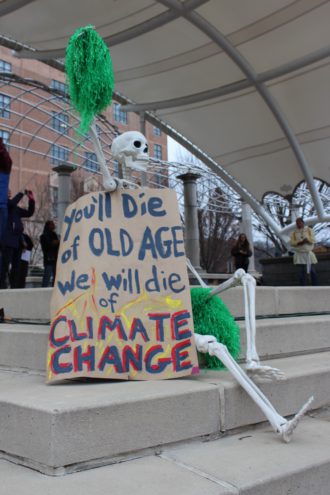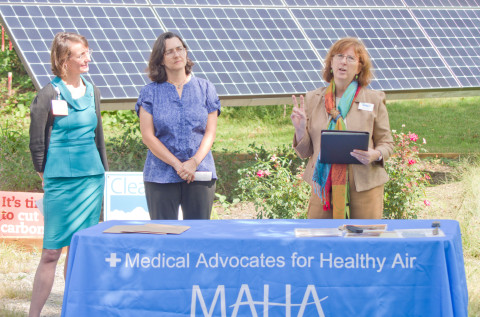“I am grateful to see the amount of electric vehicles on the road. We have come a long way in the years since EVs first hit our roads. We saw a reduction in emissions, but we have a long way to go.”


“I am grateful to see the amount of electric vehicles on the road. We have come a long way in the years since EVs first hit our roads. We saw a reduction in emissions, but we have a long way to go.”

“Take a moment to contact your representatives in Raleigh. Let them know you want effective action to stop climate change.”

“Furthermore, it happens that the same old land use patterns driving carbon emissions also drive housing unaffordability.”

In fiscal year 2019-20, the most recent year for which data is available, the city emitted the equivalent of roughly 18,000 metric tons of carbon dioxide. Its target for the year was approximately 15,600 metric tons of CO2, about 15% less than the actual figure.

At an April 21 meeting, the Buncombe County Board of Commissioners lent their unanimous support to designating 16,000 acres of the Pisgah National Forest in the county’s northeast as the Craggy Mountain Wilderness and National Scenic Area. And on April 28, Duke Energy unveiled the most detailed public explanation to date of how company leaders are thinking about the longer-term future.

“Asheville can lead this charge starting by the City Council committing to a green fleet by 2030. This commitment is an important benchmark in Buncombe County’s goal of being 100 percent renewable by 2042, including government operations, personal vehicles, homes and businesses.”

“The irony is that a reductive materialist worldview is arguably what has caused humanity to view the Earth as our own personal grab bag and dumping ground in the first place.”

Clean Air Carolina and its MAHA initiative (Medical Advocates for Healthy Air) held an Asheville press conference Wednesday. Sept. 17, to highlight President Obama’s latest proposal to limit carbon pollution from the nation’s power plants — and the positive health impacts of the plan. Power plants are responsible for 52 percent of North Carolina’s carbon pollution. “Climate change […]